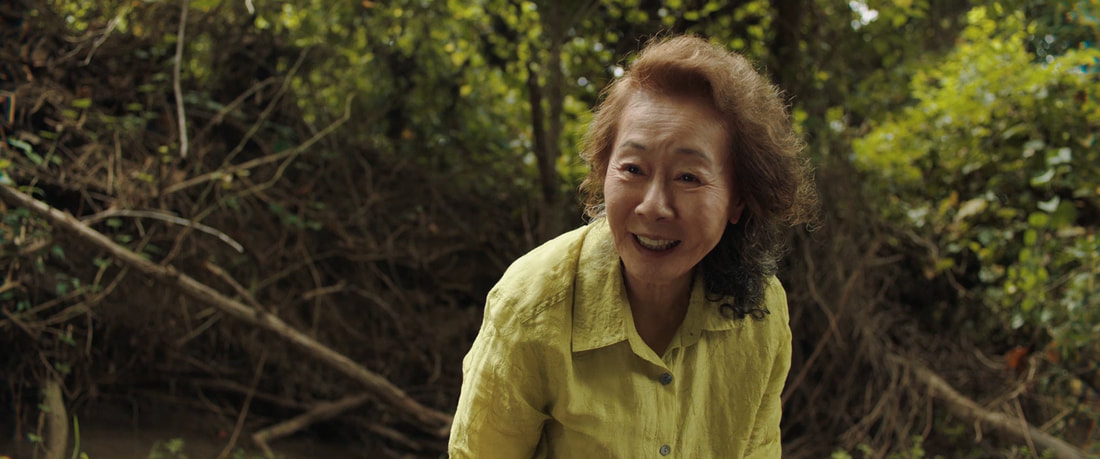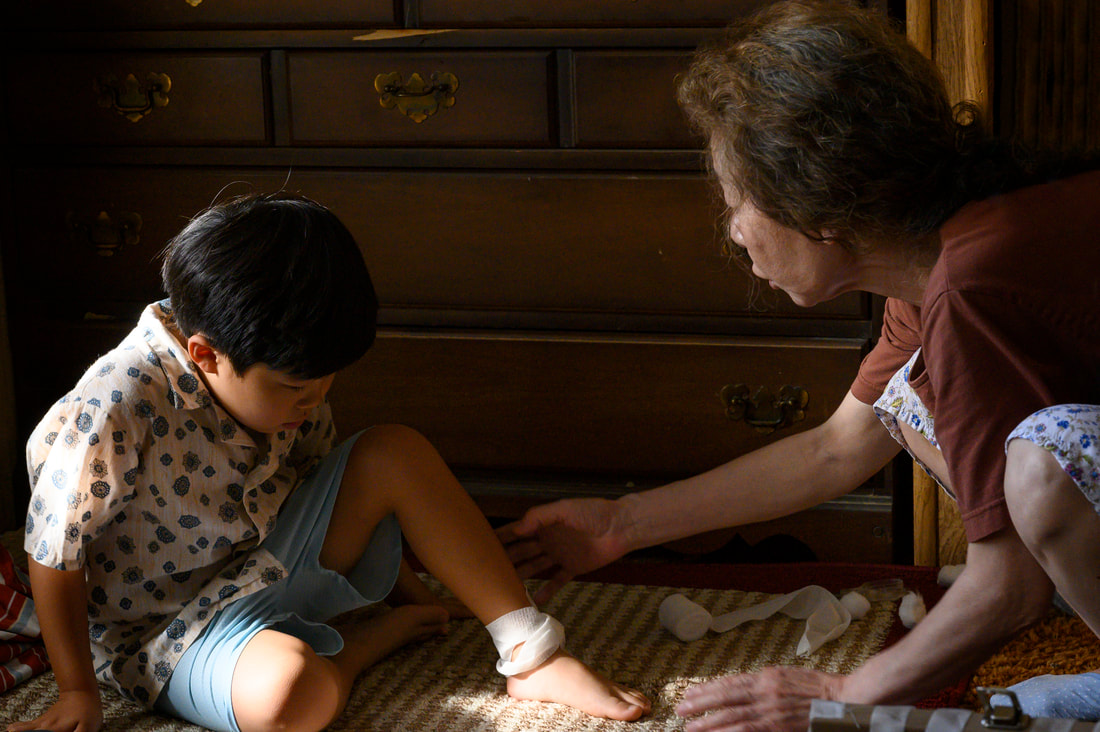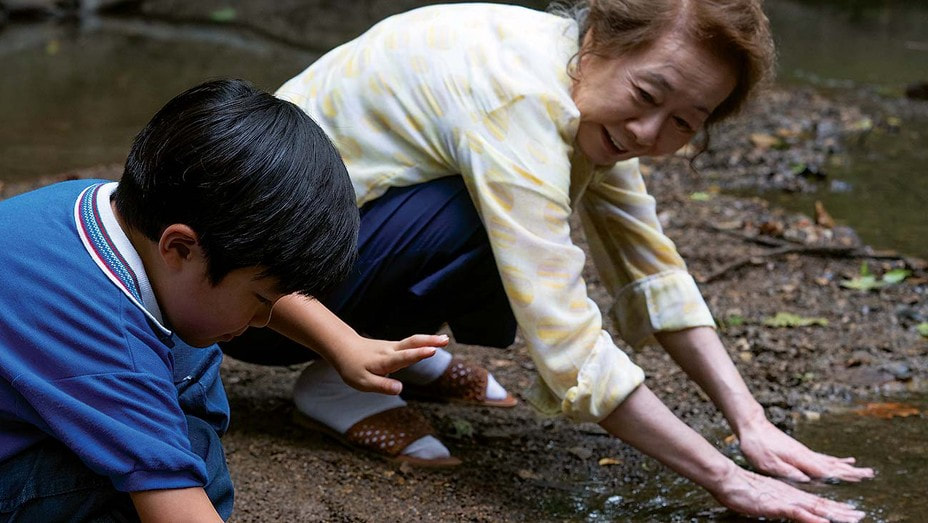|
Interview by Camden Ferrell
Over a year after its premiere, Minari is receiving attention this awards season and was even in the National Board of Review’s Top Ten Films of 2020. A lot of this attention is surrounding the performance of legendary Korean actress Yuh-Jung Youn. She was recently nominated for best supporting actress by the Screen Actors Guild, becoming the first Korean actress to do so. In anticipation of Minari’s release in theaters, disappointment media had the opportunity to talk with the seasoned actress about her new movie.
On Receiving Her Role
disappointment media: Can you tell us a little bit about how you met Lee Isaac Chung and got the role of Soonja?
Yuh-Jung Youn: Okay. I have a dear friend, and she’s Korean, and she was born and raised in Germany. We were going to make a film together back 20 years ago, but the project fell apart. I tried to comfort her and her friend Grace Lee, and then we became friends later on. Then, she was back and forth from Germany to Korea and America. And then one time, she asked me to have some kind of Q&A thing while we were at the Busan International Film Festival. And her friend, [Lee] Isaac Chung, is teaching at the University of Utah, and he's going to bring his students because they'd like to meet us and then have a Q&A, so I said yes. We had the Q&A, and I was very shocked and impressed. Isaac mentioned my first movie [Women of Fire]. It's from back in the '70s, and Isaac wasn't born at the time. I wondered how such a young guy could know about my first movie. I found out his major was film history, so I was very touched and moved. The students weren’t interested about that movie, so we didn't talk about it. That was the first meeting with Isaac. Later on, my friends brought a script. It's Minari, and it's written in English, and as you know, my English is not perfect. In the middle of reading the script, it was very real to me. During that day, I hadn’t finished yet, so I called my friends and asked, “Is this [Isaac’s] story?” She said yes, so I said, “Okay, I will do it.” That's the story. disappointment: You’ve had an extensive career working in South Korean film and television. How did your experience working on Minari, an American film, differ from your past experiences as an actress? Youn: I don't know. The director was Korean and Steven [Yeun] was Korean and Yeri [Han] was Korean, so we didn't feel that much different working in Korea, but the staff is different, and then we try to speak English and there are some words I don't know. Like they say that first team comes in, or something like that. I thought, “Who is the first team?” That kind of special word. I couldn't get it, but later on, we picked it up. There's always a first team that comes in, and I’m like, “Who is first team?” and I was looking around, and I realize that I’m first team. disappointment: Earlier in your career, you came to the United States before returning back to Korea. How did your experiences in the United States shape your performance in Minari? Youn: That’s hard because I didn’t have that experience myself. I have a lot of friends who came to the States as immigrants. Of course, they struggled with English, and because of the time, they were well-educated, but they couldn't get a proper job. Every nation loves their second generation. They’re trying to do their best to give them a better future than we have, so they work hard, and they sacrifice for them. I think it is kind of insulting. Since they cannot speak English perfectly, they have to do something like chicken sexing, like they do in the movie. So yes, I've been watching many families and many parents sacrifice and work for their children, so that hurts. On Filming Minari (Contains Mild Spoilers)
disappointment: In Minari, you play a witty and foul-mouthed grandma. are there any people in your life who inspired this character?
Youn: Actually, the first question I asked Isaac was if I should imitate [his] grandmother. He said, “No, no, you do it your own way,” so that gave me freedom. I was thankful because it’s different with every director. Some of them want you to do it a certain way or to imitate their grandmother. They might say she has a very specific behavior or something like that. Sometimes, I feel like I cannot move around if the director gives me that kind of direction, but Isaac was smart enough not to give me that direction. He told me to just do whatever [I] want. I felt very trusted, so I just played myself if I were in her position and in her situation. That was my imagination. I was witty because I think the culture difference between her grandson and her makes people laugh. Also, I like to be witty, and I like to laugh all the time. I don't want to be serious. disappointment: What was the most difficult scene to film for your character? Youn: [Soonja] got paralyzed because of the stroke, and usually, on set, somebody had to be with me to correct me and tell me if I should move this way or that way. I practiced a lot before I left Korea. I have a very nice neurologist friend, Dr. Kim. I was very grateful and thankful that he showed me a lot of videos, and he actually was performing in front of me how to do this and that. So that scene was just trying not to forget that this side is not supposed to move because of the stroke. That was very tricky. And of course, the fire scene was very dangerous to film. disappointment: What do you think families of Korean immigrants will like most about this movie? Youn: I don't know because they all have a different memory like you. Everyone has a grandma. For instance, my first son, he is a Korean-American living in New York, and he's not trying to watch this movie. I was so shocked that he's not watching it; his mother is in the movie. I later found out that he saw the trailer, and it made him cry. He saw me playing go-stop, and he remembered his great aunt was playing go-stop when he visited Korea. It’ll be different for everyone. disappointment: What do you hope audiences will learn from your character after watching Minari? Youn: You know, if they see the movie, then it’s their part to learn and understand my role and the movie. I cannot suggest how to watch the movie. I'm not the guidance. Whatever they individually feel and think, that's just part of this movie, so it's fine with me. disappointment: In the movie, you have great chemistry with Alan Kim. Can you tell us what it was like to work with this young and talented actor? Youn: First, I was like, “Wow, what am I going to do with this young boy?” He’s a seven-year-old boy, but he was like a sponge to me; Isaac told him to do this. He just treated me like a grandma. We usually did a master shot together, him and me. He has a good memory, so he memorized all the lines perfectly. So, we would do the first master take. Later on, if Isaac needed some kind of shot from him, he directed [Kim] in a very wise and smart way. That's how David became that character. He was really good. Like a sponge, he just absorbed everything. On Her Career and Korean Representation
disappointment: Your career has spanned many decades, and you've worked with so many different directors. Are there any directors you want to work with in the future that you haven't worked with yet?
Youn: When you're young you can hope for a lot of things, but at my age, as I’m older, I know the chance has to come to me, and the role has to be suitable for me. If somebody asks me to do it, then I will do it, but I’m not hoping to do it with a specific director because it will give them pressure. disappointment: Over the last few years, we've seen an increase in the popularity of Korean culture in the United States. What do you hope for the future of Korean representation in Hollywood? Youn: I'm doing some kind of project now. That's why I'm in Vancouver. There's a lot of Korean directors here actually. I was hoping you guys could have a better future than us, so you can introduce a lot of Korean culture, so we can share it. After all, we are all the same human beings. The culture may be different, but later on, it's all the same. It's not about discrimination anymore. It’s just sharing together, like you have this kind of culture, we have this kind of culture, but in the end, we love each other. We are all trying to make the future better, not fight each other, not talking about discrimination or something, just that we are all the same. Whether your face is yellow or white, it doesn't matter. We are all same human beings, so I wish we can share together and then love each other.
Minari will be in select theaters February 12 and on VOD February 26.
0 Comments
Leave a Reply. |
Archives
March 2024
Authors
All
|
|
|
disappointment media
Dedicated to unique and diverse perspectives on cinema! |



